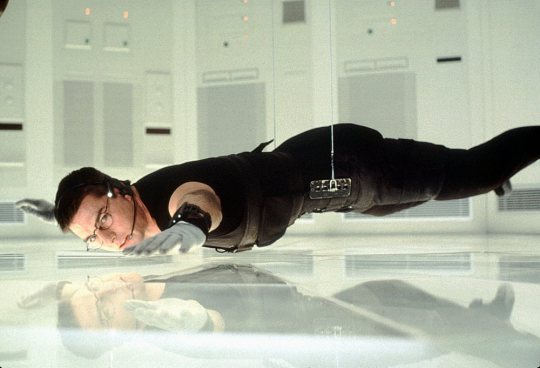Impossible to Please: How Mission: Impossible Made Fans Happy By Ignoring Them by Rob Thomas
By Yasmina Tawil

When a movie star stands on the red carpet at his latest premiere and tells an interviewer, We made this one for the fans, what does he mean? It sounds on the surface like a vaguely populist Give the people what they want! sort of statement, that the filmmakers had the hardcore supporters of the franchise in mindrather than the studio, or the critics, or the overseas marketswhen they made the movie.
The idea of fan servicewhether its putting in inside jokes and other Easter eggs that only the faithful will understand, or structuring entire films around beloved storylines and charactersis a powerful one in modern risk-averse Hollywood. Look at the Marvel movies, which have been wildly successful by putting the comic book company in charge of the franchise. Characters and storylines adhere to the mythology that the fans already know; the movies themselves are treated like comic book runs, the latest chapters in a sprawling, never-ending story arc.
There have been some fine Marvel movies. But how much creative freedom can a director have in making a movie thats always the middle chapter in a story written by the higher-ups, one that fans already buy rote? Each movie just pushes the engine forward a little more and no director can stray too far from the tracks without potentially derailing the entire franchise and ticking off fans.
But thats not the only way to run a franchise. Look at the Mission: Impossible series, which, beginning with Brian De Palmas first entry in 1996, stands as a bold rebuke to the idea that the fans of a franchise are its best caretakers. A popular series in its time, the original TV show from the late 60s and early 70s had not aged well over the years, revived once as a middling reboot with an aging Peter Graves in the late 1980s. Paramount Pictures had the film rights for years, but by the time Cruise got involved as the first project for his new production company, if people remembered it, they remembered it first for Lalo Schifrins iconic theme music.
Which meant it was ripe for Cruise to turn it into his own action-adventure star vehicle. And that it was also ripe for De Palma, never shy about putting his influences and obsessions into his films, to put his stamp on it as a director. That there wasnt much of an ardent fan base ended up working in the movies favor, because Mission: Impossible was a devalued franchise; the audience was too young to be fans of the show, so nobody would be upset if anyone tinkered with it.
And boy, did De Palma tinker. Signed on by Cruise before a screenplay was finishedDe Palma would bring in screenwriters Steve Zaillan, David Koepp, and Robert Towne to work on it, sometimes on competing versionsDe Palma likely had a freer hand to orchestrate the results than if he had worked from a finished screenplay. The result has his fingerprints all over it: Whip off the lifelike summer blockbuster mask, and theres a Brian De Palma film underneath.




